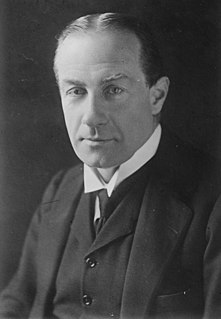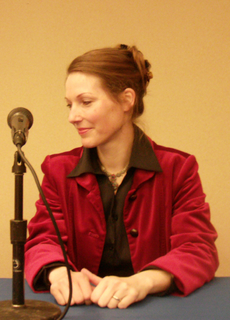A Quote by Bertrand Russell
The opposition of instinct and reason is mainly illusory. Instinct, intuition, or insight is what first leads to the beliefs which subsequent reason confirms or confutes; but the confirmation, where it is possible, consists, in the last analysis, of agreement with other beliefs no less instinctive. Reason is a harmonizing, controlling force rather than a creative one. Even in the most purely logical realms, it is insight that first arrives at what is new.
Related Quotes
Reason in a creature is a faculty of widening the rules and purposes of the use of all its powers far beyond natural instinct; it acknowledges no limits to its projects. Reason itself does not work instinctively, but requires trial, practice, and instruction in order gradually to progress from one level of insight to another.
I think it's important to reason from first principles rather than by analogy. The normal way we conduct our lives is we reason by analogy. [With analogy] we are doing this because it's like something else that was done, or it is like what other people are doing. [With first principles] you boil things down to the most fundamental truths…and then reason up from there.
One must be oneself very little of a philosopher not to feel that the finest privilege of our reason consists in not believing in anything by the impulsion of a blind and mechanical instinct, and that it is to dishonour reason to put it in bonds as the Chaldeans did. Man is born to think for himself.
In some mysterious way, once one has gained an insight into human nature, that insight grows from day to day, and he to whom it has given to experience vicariously even one single form of earthly suffering acquires, by reason of this tragic lesson, an understanding of all its forms, even those most foreign to him, and apparently abnormal.
How so many absurd rules of conduct, as well as so many absurd religious beliefs, have originated, we do not know; nor how it is that they have become, in all quarters of the world, so deeply impressed on the minds of men; but it is worthy of remark that a belief constantly inculcated during the early years of life, while the brain is impressionable, appears to acquire almost the nature of an instinct; and the very essence of an instinct is that it is followed independently of reason.
If there are sound reasons or bases for the points you demand, then there is no need for violence. On the other hand, when there is no sound reason that concessions should be made to you but mainly your own desire, then reason cannot work and you have to rely on force. Thus using force is not a sign of strength but rather a sign of weakness.
To consider the matter aright, reason is nothing but a wonderful and unintelligible instinct in our souls, which carries us along a certain train of ideas, and endows them with particular qualities, according to their particular situations and relations. This instinct, 'tis true, arises from past observation and experience; but can anyone give the ultimate reason, why past experience and observation produces such an effect, any more than why nature alone should produce it?
There are two excesses: to exclude reason, to admit nothing but reason. The supreme achievement of reason is to realise that there is a limit to reason. Reason's last step is the recognition that there are an infinite number of things which are beyond it. It is merely feeble if it does not go as far as to realise that.































